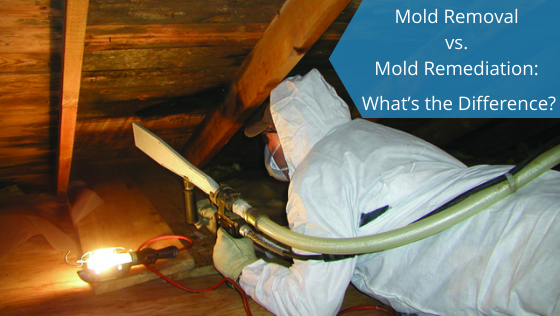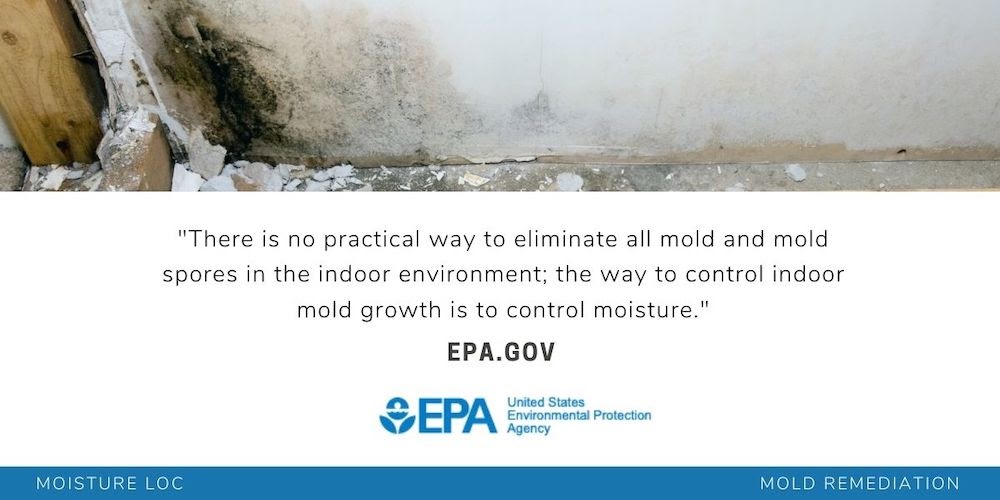
The difference between mold removal and mold remediation is that while one focuses on physically removing all spores, the other returns levels to normal. However, achieving the first option is impossible; microscopic airborne particles occur naturally in both outdoor environments as well as indoor ones. Mold becomes a problem when moisture is constantly present and the amount of mold begins affecting indoor air quality, causing health problems for residents, especially if they suffer from asthma or other respiratory issues.
Should I ask for Mold Removal or Mold Remediation Services?
If you have a moisture problem and you suspect mold, call in a professional as soon as possible. Moisture problems in your basement or crawl space can turn into structural issues. Mold removal and Mold Remediation are used interchangeably, but it’s important to understand that there are no federal limits or standards for mold or mold spores (EPA.gov). Experts agree that 100% mold removal is impossible, but mold remediation can clean up damaging mold and solve the moisture problem.

Mold Can Occur Anywhere
Mold can grow in various places, and surface mold is common in bathrooms, kitchens, laundry areas, around water pipes, and windowsills that collect moisture when it rains. In most cases, surface mold can be treated and removed with a mixture of bleach and water.
Basement mold is the most concerning type of mold because it’s often hidden from view and can grow and spread, invading the foundation, drywall, and frame of your home. Wherever there is moisture and inadequate ventilation, mold can grow, increasing the number of mold spores in your home.
If there’s one place in your home that is likely to collect moisture and have inadequate ventilation, it’s the basement. In the right environment, mold can grow quickly and wreak havoc on your indoor air quality. Don’t wait until it’s too late; consult with a certified mold inspector as soon as possible.
How to Identify Basement Mold
While structural mold can be hard to notice visually, there may be other signs of its presence. Strange smells in your home and increased allergies can signify mold issues, as can stains on wallpaper, drywall, or wood. If you experience an earthy, musky scent or any visual signs of mold, it’s crucial to address the situation immediately. If you suspect mold, it’s best to consult with basement mold remediation specialists. A reputable mold remediation specialist is certified by OSHA and knows how to identify AND remediate mold.
Crawlspace and Basement Mold Treatment
Look for a provider who has experience with Charlotte area basement mold remediation and offers state-of the art treatments. Your mold treatment specialist should offer a superior, safe, and environmental-friendly technique of mold removal. In addition to mold treatment, look for a moisture treatment company who provides crawlspace and basement waterproofing and yard drainage solutions. Mold problems and water go hand-in-hand, treating one without treating the other will lead to more mold problems in the future.
Ask about dry ice blasting, a safe and environmentally friendly mold remediation service.
If you suspect a basement mold problem in your home, Moisture Loc is OSHA certified and ready to help. Contact Moisture Loc for a free consultation today.

